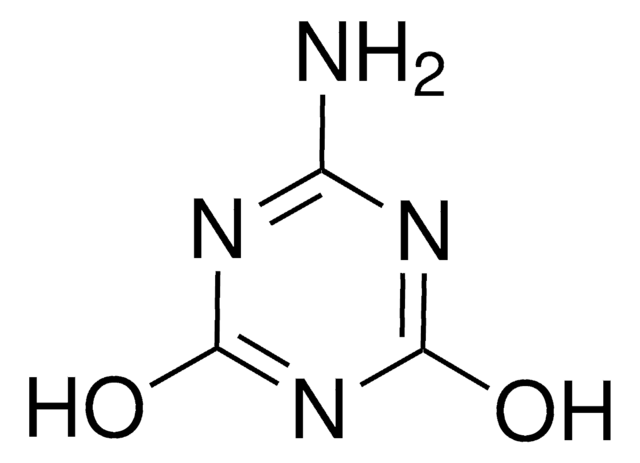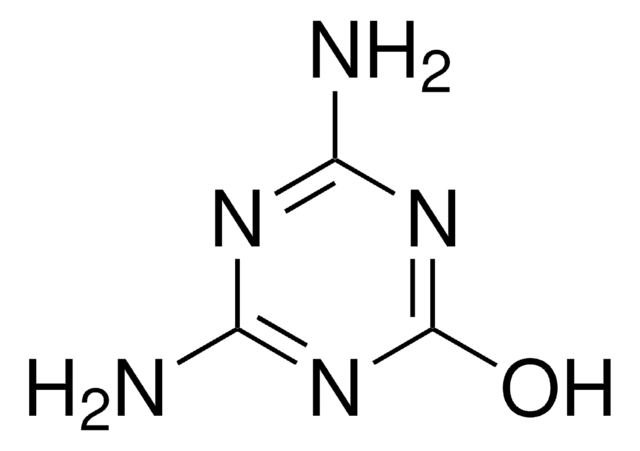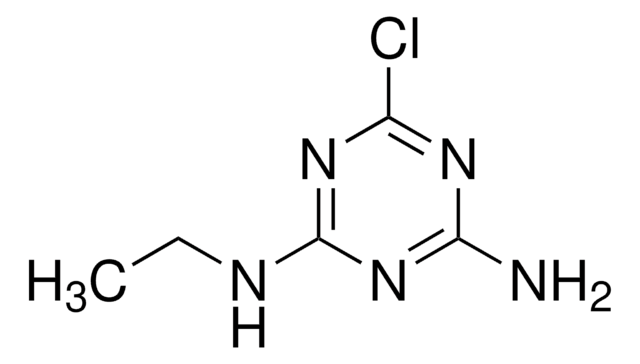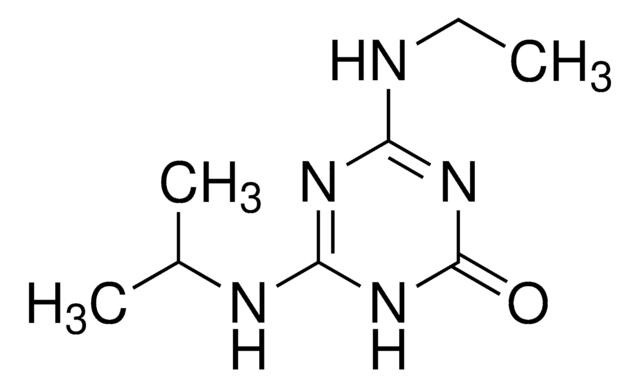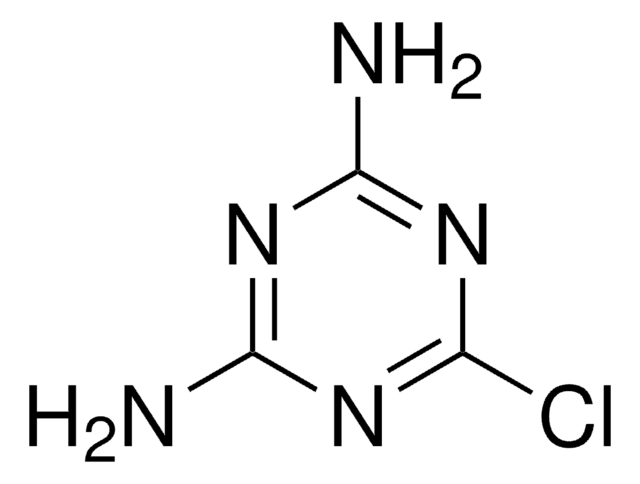45613
Atrazine-desethyl-desisopropyl-2-hydroxy
PESTANAL®, analytical standard
Synonym(s):
4,6-Diamino-2-hydroxy-1,3,5-triazine, Ammeline
Sign Into View Organizational & Contract Pricing
All Photos(1)
About This Item
Empirical Formula (Hill Notation):
C3H5N5O
CAS Number:
Molecular Weight:
127.10
Beilstein:
607753
EC Number:
MDL number:
UNSPSC Code:
41116107
PubChem Substance ID:
NACRES:
NA.24
Recommended Products
grade
analytical standard
Quality Level
product line
PESTANAL®
shelf life
limited shelf life, expiry date on the label
technique(s)
HPLC: suitable
gas chromatography (GC): suitable
application(s)
agriculture
environmental
format
neat
SMILES string
Nc1nc(N)nc(O)n1
InChI
1S/C3H5N5O/c4-1-6-2(5)8-3(9)7-1/h(H5,4,5,6,7,8,9)
InChI key
MASBWURJQFFLOO-UHFFFAOYSA-N
Looking for similar products? Visit Product Comparison Guide
Application
Refer to the product′s Certificate of Analysis for more information on a suitable instrument technique. Contact Technical Service for further support.
Legal Information
PESTANAL is a registered trademark of Merck KGaA, Darmstadt, Germany
Storage Class Code
11 - Combustible Solids
WGK
WGK 3
Flash Point(F)
Not applicable
Flash Point(C)
Not applicable
Personal Protective Equipment
dust mask type N95 (US), Eyeshields, Gloves
Choose from one of the most recent versions:
Already Own This Product?
Find documentation for the products that you have recently purchased in the Document Library.
Customers Also Viewed
Hongkai Zhu et al.
Journal of hazardous materials, 373, 671-677 (2019-04-08)
Occurrence, spatial distribution, and temporal trends of melamine and its derivatives (ammeline, ammelide, and cyanuric acid) were investigated in surface sediment and two sediment cores collected from Lake Shihwa, South Korea. ∑Melamine (sum of melamine and its three derivatives) was
Hongkai Zhu et al.
Environment international, 123, 375-381 (2018-12-21)
Melamine is used extensively in household products, such as furniture, dinnerware, and food utensils. Several studies have shown that melamine adversely affects kidney function. Nevertheless, little is known about urinary melamine concentrations, and its temporal variability. In this study, 213
Jennifer L Seffernick et al.
Journal of bacteriology, 192(4), 1106-1112 (2009-12-22)
Melamine toxicity in mammals has been attributed to the blockage of kidney tubules by insoluble complexes of melamine with cyanuric acid or uric acid. Bacteria metabolize melamine via three consecutive deamination reactions to generate cyanuric acid. The second deamination reaction
Kazuhiro Takagi et al.
Applied microbiology and biotechnology, 94(6), 1647-1656 (2011-11-23)
Melamine has recently been recognized as a food contaminant with adverse human health effects. Melamine contamination in some crops arises from soil and water pollution from various causes. To remove melamine from the polluted environment, a novel bacterium, Nocardioides sp.
Yanying Li et al.
Environment international, 130, 104924-104924 (2019-07-02)
Traditional extraction methods (soil solution and solvent extraction) are simple to use and conventionally employed to assess pesticide chemical form and bioavailability in soils. However, whilst convenient for regulatory testing, it has been suggested that these approaches may be too
Our team of scientists has experience in all areas of research including Life Science, Material Science, Chemical Synthesis, Chromatography, Analytical and many others.
Contact Technical Service